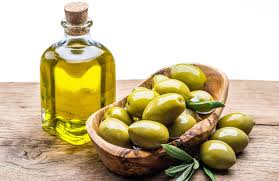A groundbreaking study published by JAMA has shed light on a potential link between olive oil consumption and a decreased risk of death related to dementia. The research, which tracked a substantial cohort of 92,383 individuals over a span of nearly three decades, has unveiled intriguing findings regarding the impact of olive oil on cognitive health.
The study, drawing data from the Nurses’ Health Study and Health Professionals Follow-Up Study spanning from 1990 to 2018, meticulously analyzed olive oil consumption patterns among participants. Researchers categorized olive oil intake into four distinct groups, ranging from minimal consumption to more substantial daily doses. Over the study period, individuals who consumed at least 7 grams of olive oil daily exhibited a remarkable 28% lower risk of death from dementia-related causes compared to their counterparts.
Lead author of the study, Dr. [Name], emphasized the significance of these findings, stating, “Beyond heart health, the findings extend the current dietary recommendations of choosing olive oil and other vegetable oils for cognitive-related health.”
But what exactly makes olive oil a potential elixir for cognitive well-being? Melanie Murphy Richter, a registered dietitian nutritionist, delves into the nutritional intricacies, explaining that olive oil’s rich composition of monounsaturated fatty acids, vitamin E, and polyphenols can play a pivotal role in safeguarding neurological health. “Consuming adequate amounts of monounsaturated fats, including those from olive oil, supports proper communication between brain cells and also helps to surround and insulate our brain’s nerve fibers,” Richter elaborated.
However, amidst the accolades for olive oil’s cognitive benefits, experts caution against overlooking the quality and sourcing of this prized ingredient. Kristin Kirkpatrick, a registered dietitian at the Cleveland Clinic Department of Wellness & Preventive Medicine, underscores the importance of scrutinizing factors such as country of origin, harvest date, and processing methods when selecting olive oil. “Not all olive oils are created equal,” Richter warned, advocating for extra-virgin or cold-pressed organic varieties to maximize nutritional benefits.
Despite its acclaimed virtues, olive oil has faced recent challenges, with climate-related disruptions leading to supply concerns and price fluctuations. Yet, experts maintain that prioritizing quality over cost remains paramount in reaping the cognitive rewards of this Mediterranean staple.
As the scientific community continues to unravel the mysteries of dementia prevention, the role of dietary interventions, such as olive oil consumption, offers a tantalizing avenue for further exploration. With each drop of this golden elixir, individuals may find themselves not only savoring the flavor but also nurturing their brain health for years to come.












